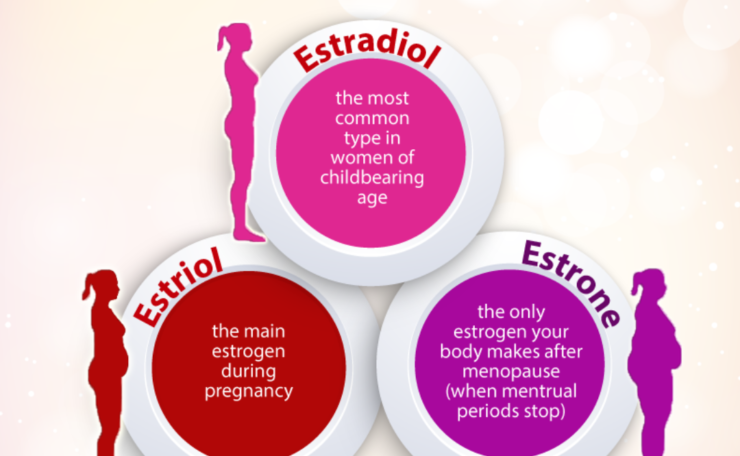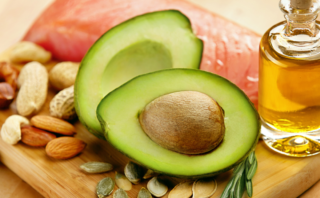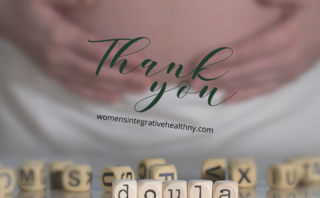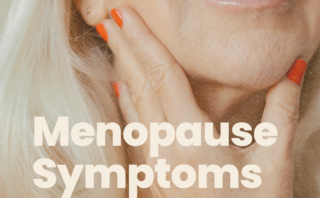Lowering Estrogen
First, you need to uncover your root causes and drivers of high estrogen. Understanding why your estrogen is high and addressing the why before implementing ways to lower estrogen is necessary.
What is Estrogen and What Is It’s Role in Your Cycle?
Estrogen is one of your main sex hormones. It rises in the 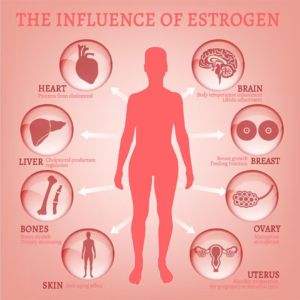 follicular phase just as your menstruation phase is ending. It is a growth hormone that builds your uterine lining. Enough estrogen is needed to trigger ovulation to occur in a cycle. Once ovulation has occurred, progesterone helps to keep estrogen in check.
follicular phase just as your menstruation phase is ending. It is a growth hormone that builds your uterine lining. Enough estrogen is needed to trigger ovulation to occur in a cycle. Once ovulation has occurred, progesterone helps to keep estrogen in check.
Some Symptoms of High Estrogen Levels Include:
- Cramps
- Period pain
- Breast pain or tenderness
- Mood swings
- Cyclical acne
- PMS
- Bloating
- Heavy bleeding
- Headaches
The problem with these symptoms is that they can also by symptoms of low progesterone. If you haven’t had lab work done and are struggling with these symptoms, you need to understand both your estrogen and progesterone levels. We can’t just assume it’s high estrogen. It’s important to test these hormones 5-7 days after ovulation to assess the relationship between estrogen and progesterone.
Maybe you have uncovered that you do have high estrogen. It’s helpful to think about:
- What is adding to my estrogen load
- What is impacting my ability to move estrogen out of the body
Estrogen gets metabolized (broken down and packaged up) in the liver and moved out of the body through the stool. Things like stress, nutrient deficiencies or too much alcohol can impair the liver’s job. Gut issues like constipation affect if estrogen is actually getting moved out of the body.
Some common reasons that contribute to high estrogen levels are:
- Nutrient deficiencies
- Constipation
- Conventional meat
- Too much alcohol
- Gut bacteria imbalances
- Genetics
- Insulin resistance
- Low fiber
- Poor estrogen detox (liver)
- Poor methylation (can be genetic)
- Products with hormone disrupting chemicals
- Stress
- Structural reason – endometriosis, fibroids, ovarian cysts
As you can see there is not just one reason for high estrogen levels and often it’s a mix of several or many of these reasons. This is why doing something like taking a “hormone balancing” supplement isn’t necessarily addressing the why your estrogen levels are high.
Some Things That Can Help Are:
- Swapping out plastic and kitchenware
- Swapping personal care and cleaning products
- Cutting back on alcohol
- Eating consistently for balanced blood sugar
- Teas like dandelion root tea, turmeric, raspberry leaf
- Supporting gut health
- Correcting nutrient deficiencies
- Supplements tailored to labs
Overall, when it comes to actually lowering high estrogen levels:
- Discover your hormonal levels – symptoms give you clues, testing will give you answers
- Uncover your root causes
- Set a solid nutrition and lifestyle foundation
- Use supplements as a supplement to this foundation
- Give yourself grace and time
For personalized programs specific to your root causes and issues, get in touch. We can develop a plan according to your specific needs and goals.

